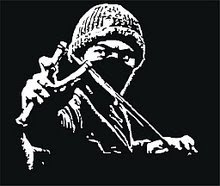Wednesday 21 October 2009
Sunday 4 October 2009
Chase the...Devil
One of Jamaica's best and provocative lyricists is without doubt the man we know as Max Romeo, a singer who gave us such enduring songs as the PNP-used 'Let The Power Fall On I', 'Chase The Devil', 'Public Enemy Number One', 'No Joshua No', 'Macabee Version' and 'Three Blind Mice', which are too few to mention here and hardly even scratching the surface of a vast catalog of classic music from the so-called golden era of Jamaican music. In the mid seventies he cut two albums which could easily be regarded as milestones, namely 'Revelation Time' and the Lee Perry-produced 'War In A Babylon'. Two outstanding contributions that will, most likely, remain in print for as long as coming generations will investigate what went on in the the music's glorious past. But he began, solo, in a filthy and rude manner, 'Wet Dream' was exactly about what you would believe such a title would be about; some the most elementary and natural of our needs and pleasures, sung in a suggestive way that the skinheads found to their liking and supporting at the time, 1969, and thus making it into a big novelty hit around the UK and kick-starting our artist's overseas career after he had called it quits with groups like the Emotions and the Hippy Boys on Jamaican ground. But he had to reconsider the direction his career was taking, and so he chose the cultural side of things, which proved right in the long run and to be one of the most interesting developments in Jamaican songwriting from the early seventies onwards.
www.reggae-vibes.com
PJ Harvey (DnB is not my style)
During the early-'90s alternative rock explosion, several female singer/songwriters rose to prominence, but few were as distinctive or as widely praised as Polly Jean Harvey. Over the course of three albums, Harvey established herself as one of the most individual and influential songwriters of the '90s, exploring themes of sex, love, and religion with unnerving honesty, dark humor, and a twisted theatricality. At the outset of her career, she led the trio PJ Harvey, who delivered her stark songs with bruisingly powerful, punkish abandon, as typified by her 1992 debut, Dry. Following the noisy, uncompromising follow-up, Rid of Me, the trio fell apart, and PJ Harvey became the sole property of Polly Harvey. Her next record, 1995's To Bring You My Love, became her mainstream critical breakthrough, confirming her status as one of the cornerstone figures of '90s alternative rock.
(new.music.yahoo.com)
Subscribe to:
Posts (Atom)
